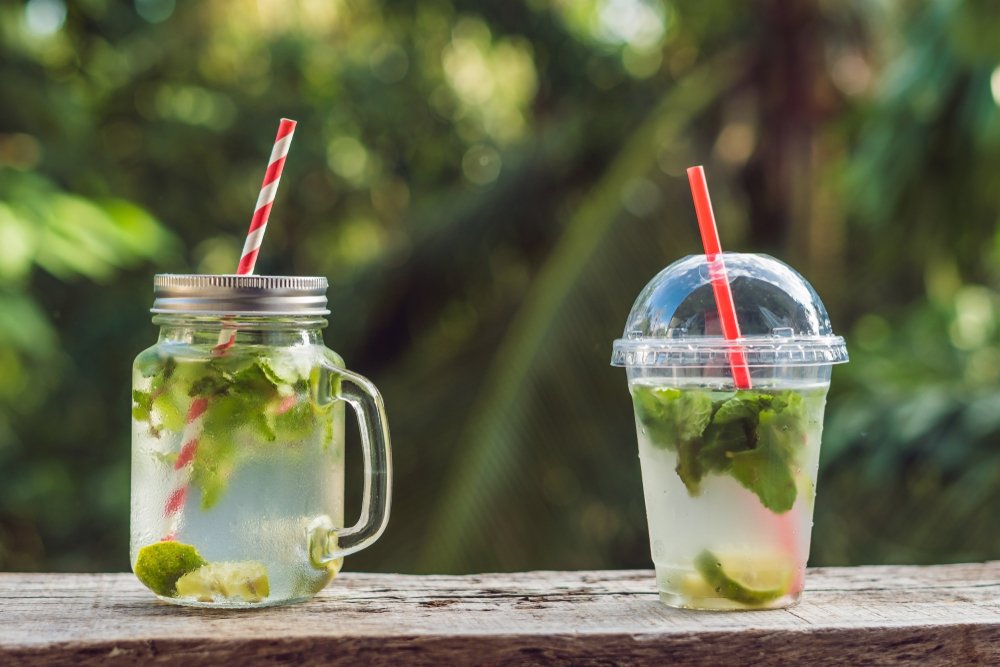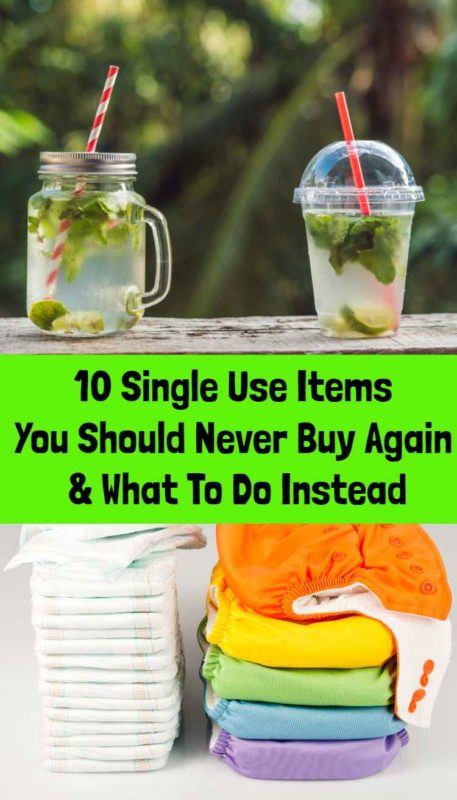
We live in a disposable age. There are so many disposable items being tossed in the trash on a daily basis it makes your head spin. The sad news is that each and every one of those disposable items that get thrown away ends up sitting somewhere – in a landfill, in a river, a lake or an ocean and contributes to pollution. Out of sight should never be out of mind when it comes to disposable goods – turns out, they are really not that disposable after all.
The good news is that there are numerous disposable household items that you can actually do without and replace with a much more sustainable option. Let’s take a look at some of these. Even making a couple of changes from this list can make a tremendous difference for not only your wallet but also the planet!
1. Toilet Paper
Although toilet paper is soft and cuddly, don’t let that fool you – it comes from trees – a lot of them. According to the World Wildlife Foundation, the United States is the world’s biggest buyer of toilet paper using 130 rolls per capita per year. The process of manufacturing toilet paper is tremendously wasteful. Old-growth forests are cut down, water is wasted and there is a huge waste of energy to manufacture and transport the product. Chemicals used in the manufacturing process only make matters worse Although chlorine bleaches the pulp and makes the paper white and soft, it is a toxin that pollutes local water sources.
Do this instead:
Consider installing a bidet in your home. Bidets use a stream of water to cleanse instead of toilet paper. You can also purchase a portable travel bidet here.
2. Diaper Wipes
If you have children, you probably buy wipes. Wipes are popular for babies and for toddlers and are convenient but really an unnecessary contribution to landfills. Wipes can also cause tremendous problems with sewer systems. Although many say that they are flushable – they really aren’t. Most wipes don’t break down but rather stay intact and clog toilets and sewer lines. According to officials in New York, wipe-related issues have cost the city more than $18 million since 2010. In addition, many brands of wipes contain small pieces of plastic to make them sturdier. The problem is that these pieces of plastic don’t degrade and eventually turn into microplastic which often ends up in water and become problematic for marine life.
Do this instead:
They are convenient and trendy but diaper wipes are really nothing more than a glorified washcloth. All you really need for your baby’s bottom are some soft organic cotton wipes and a little warm water. Throw them in the wash and reuse – it is as easy as that.
3. Zipper Plastic Baggies
I can’t begin to tell you how many of these I have gone through over the years. They are so handy but such a huge problem for our landfills and oceans. The average family in the United States uses 500 zippered baggies per year. This is more than 58 million bags per year for our country. Ziploc® bags are made from low density and linear low-density polyethylene film (LDPE). This common plastic product has numerous industrial applications. The process involved in making the bags contributes to greenhouse gasses and atmospheric contaminants.
Do this instead:
Stop buying and throwing away these dangerous, planet-killing baggies and purchase reusable baggies.You can purchase numerous types of these baggies including colorful and washable cloth varieties. You can even switch to a more traditional eco-friendly lunch container for your storage needs.
4. Plastic Shopping Bags
Americans use 100 billion plastic bags per year. These bags require twelve million barrels of oil to produce. The average American family brings home 1,500 plastic shopping bags per year. Although stores set up recycling boxes for customers to return their bags, sadly, only 1% are returned for recycling. This equates to only 15 bags per family that are recycled – the rest ends up in oceans, landfills and as litter on our streets. 80% of ocean litter comes from the land and over 100,000 marine animals are killed because of plastic bags each year.
Do this instead:
Stop bringing your groceries home in those flimsy and dangerous plastic bags. There are so many varieties of reusable shopping bags on the market – even heavy duty ones for those large shopping days.
5. Straws
Some households use more straws than others, especially if they have children. America uses enough straws each year to circle the earth 2.5 times. Unfortunately, plastic straws can’t be easily recycled and end up as litter, in landfills, and in the oceans. It takes 200 years for one plastic straw to decompose.
Do this instead:
Purchase reusable glass or stainless steel straws. Kids will really enjoy reuseable bendy straws – they are easy on the teeth and fun.
6. Plastic Water Bottles
Did you know that 12.8 billion gallons of bottled water were sold in the United States in 2016? That’s a lot of water bottles! Only one-quarter of all water bottles purchased are recycled, the rest are discarded. These discarded water bottles become pollution on their own and they also absorb organic pollutants around them. This magnifies the pollution problem in the water and the soil. Animals drink water that contains small plastic particles and one-tenth of plastic created (much from water bottles) ends up in the ocean.
Do this instead:
Not only do plastic water bottles threaten the earth and the creatures on it but they are also expensive. By making an eco-friendly switch you could save hundreds if not thousands of dollars each year. Consider buying a high-quality water filter system for your home. This could be a whole house filter or simply a pitcher for your fridge. Purchase environmentally friendly and refillable water bottles for your on the go needs.
More Reusable Items To Stop Buying
7. Paper Napkins
Go cloth – they are sturdier and classier.
8. Disposable Diapers
Diapers take 500 years to decompose and release dangerous volatile organic compounds into the air and ground – ALVA BABY Baby Cloth Diapers mean you don’t even have to use pins.
Read Next: 6 Reasons To Never Use Disposable Baby Diapers & What To Use Instead
9. Feminine Hygiene Products
Almost 20 billion sanitary napkins and tampons are dumped into North American landfills each year. When these are wrapped in plastic they can take centuries to decompose. Plastic applicators on tampons and plastic strips on pads take tremendous amounts of fossil fuel to produce. Try reusable pads and cups instead for a greener alternative.
10. Paper/Plastic Plates & Cutlery
Yes, they are nice when you are in a hurry but not so nice in our landfills. For those backyard parties and picnics, choose eco-friendly options instead like compostable plates and cutlery.
Pin This To Save For Later

